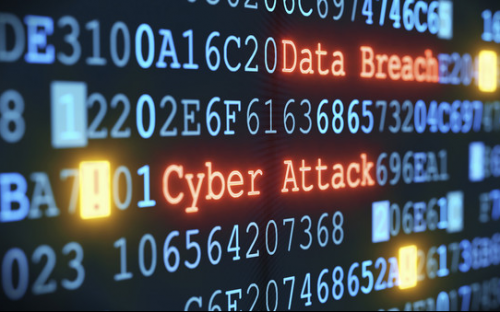PwC, the professional services firm, estimates nine out of 10 large organizations suffer a security breach — and the number of breaches doubled in 2015.
Forrester Research reckons that in the 15 largest recorded cyber attacks last year, the personal data of more than 300 million customers were stolen from companies.
The most costly single hack amounted to $1 billion stolen by a criminal gang called Carbanak, according to Kaspersky, the software security group.
MBA job opportunities have emerged as a result. Firms are ramping up their capital allocations to cyber security — Gartner calculates $75 billion was spent on information security last year.
So what do MBAs need to know about keeping their companies’ big data secure?
Cyber Attacks Could Savage Your Reputation
Tad Oelstrom, director of the National Security Program at Harvard University, says a security breach could be “hugely damaging” in many respects. “To start with financially; people might lose faith that their information can be stored safely,” he says.
He adds: “Business leaders, government leaders, and public servants are all so concerned about cyber security that the issue sits right at the top of any corporation.”
Your Company Will Be Hacked
Yet the problem with cyber attacks is that some are simply “nips in the skin”, according to David Upton, fellow at the Global Cyber Security Capacity Center at Oxford University, and professor of operations management at the Saïd Business School.
“But some are knives through the heart. We’re under increasing threat of big bad attacks,” he says.
However Bill DeLone, executive director of the Kogod Cybersecurity Governance Center, says most firms “wrongly believe that they are not targets and they are therefore unconcerned”.
Bridge The Gap Between Executives And Techies
Stuart Madnick, professor of information technology, and director of (IC)3, MIT Sloan’s cyber security initiative, suggests there is a huge culture gap between the C-suite and the techies in the basement.
As a result, “companies need people in decision making roles that understand the consequences of cyber attacks”. But that expertise is lacking, he insists.
So, there are a swelling number of career avenues for MBAs to take in the field of information management.
Emerging Career Opportunities
There are “huge opportunities for MBAs in the security, threat intelligence, and penetration testing industries”, says Jason Ferdinand, director of Coventry University Business School’s cyber security MBA.
The Global Information Security Workforce Study estimates that the global cyber security workforce shortage will widen to 1.5 million people by 2020.
Jason says: “Many of these opportunities are for technological experts, but we shouldn’t forget that many are for knowledgeable managers.”
Cyber threats have to be addressed by the CEO, says Peter Swire, a professor at Georgia Tech’s Scheller College of Business. “Because they are in charge of performance, and cyber crime can totally destroy the performance of any company,” adds Bertrand Monnet, chair for criminal risk management at EDHEC Business School.
Opportunities To Gain Expertise
The number of courses on the topic at top business schools is increasing, believes Jean-Pierre Auffret, director of the MSc in Secure Information Systems at George Mason University’s School of Business.
“As it’s become a permanent part of the landscape for corporations, it’s becoming a permanent part of the landscape for business schools.”
By training people mid-career, “we will achieve over time the type of cultural and mind-set change that is needed to support a cyber-secure environment for US businesses and our economy more generally,” says Frank Cilluffo, director of the Center for Cyber and Homeland Security at George Washington University.
RECAPTHA :
70
13
05
c5




 1
1 



Comments.